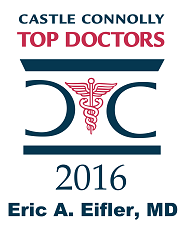Rotator Cuff Tears in Peoria, AZ: Understanding the Condition and Getting the Right Care
Rotator Cuff Tears – Trusted Care
At AZ Orthopedic in Peoria, AZ, we understand how shoulder pain can interfere with your daily life. One common cause of shoulder pain is a rotator cuff tear. One or more shoulder tendons are torn, which prevents the upper arm bone from moving freely within the socket. When the rotator cuff is torn, the result can be pain, weakness, and limited mobility.
If you’re dealing with shoulder discomfort or difficulty lifting your arm, our team at AZ Orthopedic is here to help. We’ll evaluate your condition and discuss the best options for relief and recovery. We will provide straightforward, effective solutions so that you can return to your normal routine with less pain.
Take the First Step Toward Relief
Don’t ignore ongoing shoulder pain or reduced mobility. Our specialists at AZ Orthopedic are ready to guide you through diagnosis and treatment options with care and clarity. Schedule a consultation today and find out how we can help you feel better and move with confidence again.
Benefits of Treating Rotator Cuff Tears
Treating a rotator cuff tear can significantly improve your quality of life. Here are some of the benefits you can expect:
- Pain Relief
Treatment can help reduce or eliminate the persistent aching or sharp pain associated with this injury. - Improved Shoulder Strength
After treatment, many patients are able to perform everyday tasks like lifting, bending, and sleeping comfortably. - Better Range of Motion
Proper care can restore movement to the shoulder, helping you return to normal activity levels. - Prevent Further Damage
Early treatment helps avoid worsening the tear, which could lead to more complicated issues over time. - Improved Quality of Life
Being able to move your arm without discomfort improves daily functioning, work capability, and overall well-being.
What to Expect: Procedure Overview
Every rotator cuff case is unique, so treatment plans are designed to match the severity of the tear. Here’s a general look at what the process may include:
Consultation and Imaging
The results of a physical exam and imaging test, such as an MRI or ultrasound, will confirm the diagnosis.
Non-Surgical Options
Mild tears may be managed with rest, physical therapy, anti-inflammatory medications, or steroid injections.
Surgical Repair (if needed)
For more serious tears, outpatient surgery may be recommended to repair the tendon and improve joint function.
Recovery and Rehabilitation
Physical therapy after surgery or non-surgical treatment plays a key role in full recovery.
Follow-Up Care
Regular check-ins help track your healing progress and adjust treatment if necessary.
Who is a Good Candidate for Rotator Cuff Treatment?
Most adults with shoulder pain or reduced function may benefit from evaluation. You may be a candidate if:
- You have shoulder pain that doesn’t improve with rest
Ongoing discomfort may indicate a tear needing attention.
- You experience weakness when lifting or rotating your arm
A common symptom that suggests tendon damage.
- You’ve had a recent shoulder injury
Especially if the pain appeared after a fall, sports activity, or accident.
- You’re over 40 and experiencing shoulder stiffness or pain
Degeneration can cause tears even without a major injury.
- You want to avoid long-term shoulder problems
Early treatment helps prevent worsening symptoms and chronic issues.
Before and After Care Tips
Before Treatment:
- Avoid overuse or heavy lifting with the affected shoulder.
- Note all symptoms to share during your consultation.
- Be sure to inform your provider if you have previously sustained shoulder injuries or had shoulder surgeries.
After Treatment:
- Follow all instructions from your provider, especially for rest and physical therapy.
- Pain and inflammation can be managed with prescribed medications.
- Follow-up appointments should be attended to ensure proper healing.
- Stay consistent with therapy exercises to rebuild strength and flexibility.
Why Choose AZ Orthopedic for Rotator Cuff Tear Treatment?
At AZ Orthopedic, we take pride in offering patient-focused care that is based on experience and precision. Our team understands the challenges that come with rotator cuff injuries, and we take the time to explain your condition clearly. With modern diagnostic tools and trusted treatment methods, we help you make informed decisions about your shoulder health.
Let Us Help You Get Back to What You Love
Whether you’re an athlete, a worker, or just someone who wants to move pain-free again, AZ Orthopedic is here to support you every step of the way. Contact us today to schedule your consultation and take the first step toward recovery.
Frequently Asked Questions
While both injuries can cause shoulder pain, a tear often results in more intense symptoms such as sharp pain, weakness, or trouble lifting your arm. A strain might feel more like soreness that improves with rest. A physical exam and imaging will confirm the diagnosis.
Not always. Many mild or moderate tears can be treated with non-surgical methods like rest, therapy, and medication. Surgery is usually recommended if the tear is large, causes severe symptoms, or doesn’t improve with conservative care.
Recovery time varies based on the treatment. Non-surgical recovery may take a few weeks to a few months, depending on your response to therapy. Post-surgical recovery may take several months, especially if physical therapy is required for full range of motion and strength.
Some small tears may improve with rest and therapy, but full-thickness tears often do not heal without intervention. Treatment and diagnosis at an early stage are crucial to preventing long-term complications and maintaining shoulder function.




